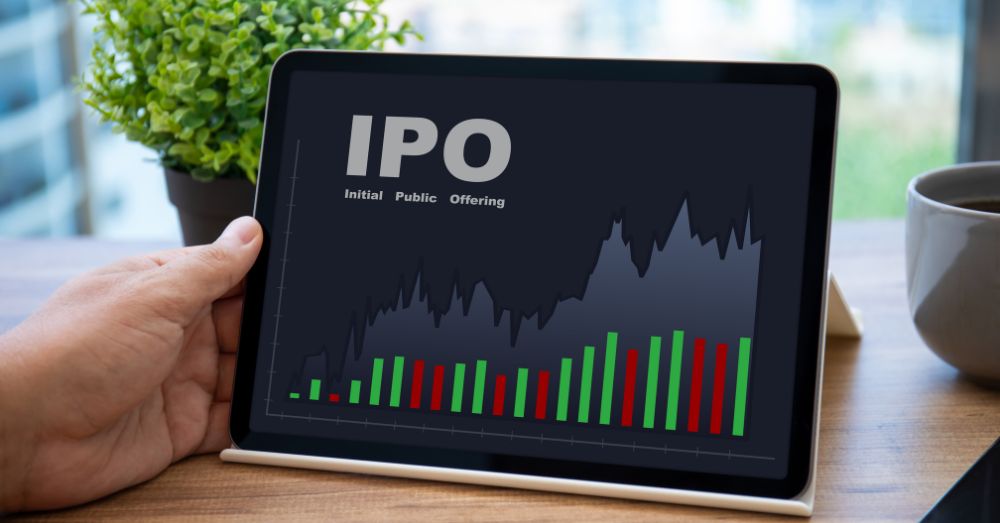If you’ve ever wondered how to invest in stocks that haven’t yet hit the public market, you’re not alone. Early investors often reap the biggest rewards—but they also take on greater risk. That’s where understanding how to invest in pre-IPO stocks becomes a game-changer.
These exclusive opportunities let you buy into private companies before they go public—potentially multiplying your returns once shares hit the open market. But navigating these investments requires experience, timing, and strategy.
Whether you’re learning how to invest in stocks or searching for the best stocks for beginners with little money, understanding pre-IPO opportunities can open the door to early growth potential.
Table of Contents
Key Takeaways
✔ Pre-IPO investing lets you buy shares in private companies before they go public for potential high returns.
✔ Accredited and non-accredited investors have different access routes to pre-IPO opportunities.
✔ Secondary marketplaces, pre-IPO funds, and crowdfunding platforms are key ways to invest in pre-IPO stocks.
✔ Working with a fiduciary financial advisor helps manage risk, timing, and diversification effectively.
✔ Always review company performance, valuation, and lock-up restrictions before investing.
Investment Methods for Accredited Investors
Secondary Marketplaces
As companies stay private for longer—often 12 years or more before going public—accredited investors are increasingly turning to pre-IPO channels to access high-growth startups earlier. Secondary marketplaces such as EquityZen and Forge Global allow accredited investors to buy shares from early employees or initial investors before a company goes public.
Angel Investing
Angel investing means providing direct funding to startups in exchange for equity. It’s an exciting way to support innovation while targeting early-stage returns. However, it’s crucial to diversify your investments and only allocate capital you can afford to lock up for years.
Private Placements
Private placements are offerings of securities directly to accredited investors under SEC Regulation D. They offer access to high-growth opportunities, but often require significant capital and carry high risk. A fiduciary financial advisor can help you determine if these align with your investment strategy.

Investment Methods for All Investors
Brokerage IPO Access
Major brokerage firms like Fidelity and Charles Schwab sometimes offer early IPO access to retail investors. While this isn’t true pre-IPO investing, it provides an opportunity to buy into new public offerings before general market trading begins.
Pre-IPO Funds
Pre-IPO funds pool investor money to purchase shares in companies preparing for public listing. They’re a smart way to diversify across multiple startups without requiring accredited status.
Venture Capital Funds
These funds focus on startups with high growth potential. Although traditional VC funds are typically limited to accredited investors, some platforms now allow smaller investors to gain exposure through fractional shares or partnerships.
Private Equity ETFs
Private equity exchange-traded funds (ETFs) provide indirect access to private company growth. They offer greater liquidity and lower minimum investments, making them an excellent entry point for investing for beginners looking to diversify.
Equity Crowdfunding
Platforms like Wefunder and StartEngine allow everyday investors to fund early-stage businesses in exchange for equity. While investment amounts are smaller, so are the potential losses, making this method ideal for those looking for the best stocks for beginners with little money.
Indirect Investment
Indirect methods—such as mutual funds or ETFs that invest in companies nearing IPO—can help new investors determine what stocks to invest in indirectly, reducing risk while gaining exposure to emerging businesses. It’s one of the best ways to invest money while maintaining flexibility.

How Do I Buy Pre-IPO Stocks?
Buying pre-IPO shares can be one of the smartest strategies for building long-term wealth—if you know how to approach it correctly. Whether you’re learning how to invest in stocks for the first time or looking for the best way to invest money in private companies, understanding each step of the process is essential.
Here’s how to get started:
1. Determine Your Investor Eligibility
Before looking into the best way to invest money, identify whether you qualify as an accredited or non-accredited investor:
- Accredited investors typically have a net worth over $1 million (excluding a primary residence) or meet specific income requirements set by the SEC.
- Non-accredited investors can access pre-IPO opportunities through regulated platforms such as equity crowdfunding sites or pre-IPO funds.
2. Select Your Investment Method
Working with the best fiduciary financial advisors near you ensures you select the best way to invest money. Once you understand your eligibility, choose the path that fits your goals and risk tolerance:
- Secondary marketplaces (e.g., Forge Global, EquityZen) let you buy pre-IPO shares from early employees or investors.
- Pre-IPO funds or private equity ETFs offer diversified exposure to late-stage startups preparing to go public.
- Equity crowdfunding is ideal for investing for beginners with smaller budgets.
3. Do Your Research
This level of due diligence helps identify what stocks to invest in—including some of the best stocks for beginners with little money that offer manageable risk and long-term growth potential—while avoiding opportunities that seem too speculative. Evaluate:
- The company’s financial performance and business fundamentals.
- Industry trends, competitors, and market outlook.
- The company’s leadership team and growth potential.
4. Consult a Fiduciary Financial Advisor
Pre-IPO investing can be complex, with limited data and liquidity restrictions. Unlike commission-based brokers, fiduciaries act solely in your best interest. A fiduciary advisor—like the experts at Best Financial Advisors in Davie, FL—can help you:
- Assess risk and diversification.
- Evaluate timing and valuation.
- Align private investments with your long-term goals.
5. Understand Lock-Up Restrictions
Most pre-IPO shares come with a lock-up period, usually 90–180 days after the IPO. During this time, you can’t sell your shares. Knowing these restrictions helps you plan liquidity and manage your investment timeline effectively.
Is Investing in Pre-IPO a Good Idea?
Investing in pre-IPO companies can deliver outsized returns—but it’s not for everyone. The benefits include early access to high-growth companies, helping investors better understand what stocks to invest in for potential long-term wealth creation.
The drawbacks? Limited data, restricted liquidity, and unpredictable valuations.
However, performance data shows that not all private investments outperform public markets. According to the 2025 State of the Private Market report by Nasdaq Private Market (NPM), the secondary private company share market underperformed the S&P 500 by about 61% between 2023 and 2024.
This highlights a key truth: while pre-IPO investing has strong upside potential, it also comes with volatility, limited liquidity, and unpredictable valuations. This is why working with experienced fiduciary financial advisors is essential.
Can I Sell My Pre-IPO Stock?
Selling pre-IPO shares depends on the company’s policies and lock-up agreements. In most cases, investors must wait until after the IPO to sell. However, some may sell earlier through secondary marketplaces—though these transactions can involve restrictions and limited buyers.
Before investing, make sure you understand your exit options and work with a fiduciary advisor to plan liquidity events strategically.
How Do We Get Profit in IPO for Beginners?
Profiting from IPO investments requires timing, research, and patience. When a company goes public, its stock may surge—offering quick gains—or fall after the hype fades. For investing for beginners, it’s smart to treat IPOs as part of a long-term portfolio rather than a short-term bet.
Working with a fiduciary financial advisor near you helps you identify IPOs that align with your goals and risk level, not just popularity.

Start Investing in Pre-IPO Stocks with Confidence
Investing in pre-IPO stocks offers exciting potential—but it also requires insight, patience, and professional support. Whether you’re figuring out how to invest in stocks or searching for the best fiduciary financial advisors near me, guidance makes all the difference.
Ready to explore pre-IPO opportunities with confidence? Contact Best Financial Advisors in Davie, FL, today!


